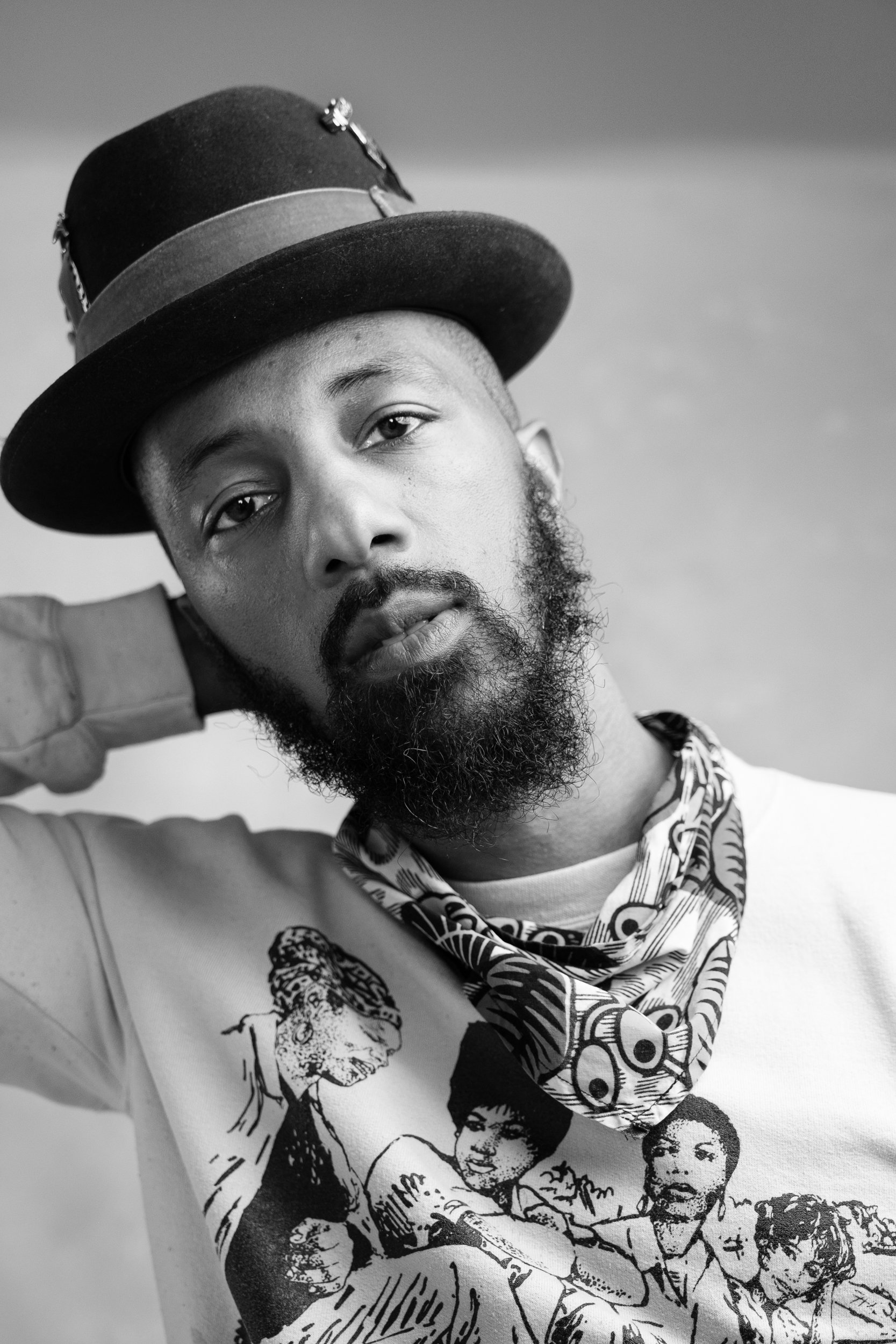






“I’m always aware of how I’m perceived by the world. My love for dressing nice came from my mom dressing me up in ties and bowties when I was little. Another part of it is that it’s almost like a disarming mechanism where someone that doesn’t know me might see me with a tie and see me dressed up and it might allow them to put their defenses down. I don’t think that way any way more but the original thought was maybe if I didn’t look a certain way, people would treat me better. It only takes a few seconds to know that that doesn’t mean nothing.”

“The natural connection that you may have with other Black men through shared interests. I realize when I’m talking to my friends that there’s a lot of things that we have in common. Talking about certain experiences we shared, in one way or another no matter what family structure we were raised in. It’s usually around sports, pop culture, and growing up in certain environments. It makes me happy to know that there are people that I can relate in ways that other people can’t relate to. Like, “oh you had those color Timbs when you were in High School?”

“The Black man is the apex. Superior physically, mentally, and emotionally. No matter how many different ways history has tried to place us last we greatly overcome challenges and always make it look easy.”

“When you see another Black man in public and you do that head nod…that’s like, universal. You can do it in Lagos, Johannesburg, London, the Caribbean. That weighted head nod is like...you’re doing alright, everything is alright. Everything is calm.”
“It’s important for me to represent my Africanness to my American friends so therefore I don’t try to water it down. The identity I have for self comes through knowing that I have to represent Africans.”

“I feel like Black people as a whole have the ability to see the silver lining in spaces where things are most bleak. We are able to laugh and joke and find happiness despite our situations, whether enforced upon us or self-imposed. That ability to laugh wholeheartedly with no care for who is around brings me the most joy”.

“I’m always conscious of my skin color as a black man. As I enter into spaces, especially white-dominated spaces. Stores, communities. I’m always consciously aware of how I’m being perceived”.
“I enjoy how we take up space, How I take up space. I enjoy the rhythm of our speech, the rhythm of our walk. There is an orchestra that beats with the Black man in a sense. We are the essence or embodiment of music. And when I say music, I mean it in the global sense. We are hip hop, we are jazz, we are swing, we are techno, we are drum and bass. We are all of it. It all comes from us. When we move and enter into spaces, we bring that rhythm with us. And I enjoy that. There is a sense of poetry in the way that we engage with one another and with our surroundings”.
“I think as Black men, there is a sense of awareness of being a protector. Not only looking out for yourself but looking out for your sisters. Specifically Black women and families”.
What do you feel in the midst of other Black men?
“I feel love. I feel absolute love. I feel at home. I feel friendship, comradery, peace. I feel grounded. There is a sense of just being. Talking in a way that you naturally speak and not feeling like you have to translate. There’s a sense of ease and understanding even in the silence. With Black men in the diaspora, we bring so many different cultural experiences to one another and there is still some unspoken love and understanding that’s shared”.